clean the whole house for less than $3 a month
This website may earn commissions from purchases made through links in this post.
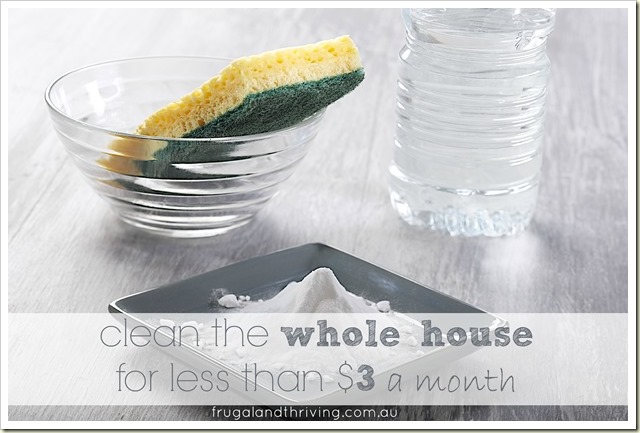
Household cleaners can take up a big chunk of the grocery budget.
But they don’t need to.
You can save money cleaning the house by making your own cleaners from just a couple of basic, natural ingredients that you probably already have on hand. And don’t worry – it’s quick and easy – as convenient as a regular spray and wipe.
There’s a lot of good reasons to make your own cleaners. Homemade cleaners are better for your health. They’re better for the environment. But just as importantly, they’re better for your budget!
You don’t need a different cleaning product for every cleaning job in the house. That’s just genius marketing convincing us to spend more.
With just a few inexpensive ingredients, you can clean just about anything around your house for less than $3 a month.
STOCK YOUR SUPPLIES
Here are the basic supplies you’ll need to clean your whole house:
With these three ingredients, you can successfully sanitise the kitchen, clean the bathroom and the toilet, freshen your laundry, cure cold sores, dress your salad and make the best bickies.
Yep, two out of three of your cleaning supplies are healthy enough to eat. And they’re safe enough that you can let your young kids help clean – which they love doing -without worrying about exposure to poisonous chemicals.
You can buy the bicarb soda in the baking section of the supermarket. You can find plain white vinegar in the condiments aisle.
Tea tree oil is with medicines, usually down the bottom. It’s a bit pricey, but you only use a few drops, so it will probably last you more than 1 year. For personal use, I like to use good quality tea tree oil, but for cleaning, the supermarket variety is sufficient. It doesn’t make sense to me to spend a fortune on cleaning the toilet.
To these three ingredients, you can also add washing soda, which also makes a great cleaning agent as is one of the ingredients (along with soap) in homemade laundry detergent.
cleaning your kitchen
Both vinegar and tea tree oil have anti-bacterial and anti-viral properties in them, so you can be assured your kitchen is hygienically clean.
For even better hygiene practices, use wooden chopping boards, not plastic, and avoid cross-contamination between raw meat and other foods.
For everyday kitchen cleaning, use a homemade all-purpose cleaner.
For a deep clean, sprinkle bench tops, sinks and drainers with bicarb soda (a little goes a long way), and spray with the all-purpose cleaner. You should hear a little fizz as the vinegar reacts with the bicarb.
Then give it a good wipe and if necessary, wipe with a cloth dampened with water to remove any bicarb residue.
To do cupboard doors and the fridge etc. sprinkle a little bicarb on your cloth and wipe over with the all-purpose cleaner.
Give the oven a good wipe over with the same way regularly to avoid the dreaded big oven clean.
For built up grease, use dishwashing liquid on a damp cloth and then finish with the spray cleaner.
cleaning your bathroom
Pour a little straight vinegar into the bottom of the wet shower recess and leave it for a few minutes. Vinegar is a great mould killer. Then sprinkle bicarb over and give the shower a good scrub.
Bicarb and all-purpose cleaner on a cloth make a great soap scum remover. I leave a little squeegee in the shower to give it a wipe over – I never have time to use it, but the kids love cleaning the glass .
Spray a wet bath with the all-purpose cleaner and sprinkle bicarb over it. Give the bath a good rub with a clean cloth. I prefer to vacuum all the hair out of the (dry) bath and sink before cleaning.
Clean your bathroom bench tops the same as in the kitchen.
cleaning the toilet
Pour a little straight vinegar into the bowl and let it sit for a few minutes.
Sprinkle bicarb soda into the bowl and around the sides and scrub with a toilet brush.
Wipe the seat with a damp cloth and bicarb soda and then finish with a wipe with the all-purpose cleaner.
cleaning the floors
You can mop the floors effectively with a combination of hot water, vinegar and bicarb soda, or you can use this super-duper floor cleaner that uses washing soda.
For cleaning carpet, you can spray some diluted vinegar on the stain and blot it up with a white towel or old terry towelling nappy.
cleaning without products – spend less with cleaning cloths
You can save even more over the long term by investing in cleaning cloths like microfibre cleaning cloths.
These cloths require no cleaning products whatsoever – just add water.
Store bought cleaners are expensive and full of chemicals that you’re better off avoiding. You can buy natural cleaners, but they’re even more expensive and work off the same marketing that you need different cleaners for different cleaning jobs.
Why spend a fortune when you can make your own for less than $3 a month?
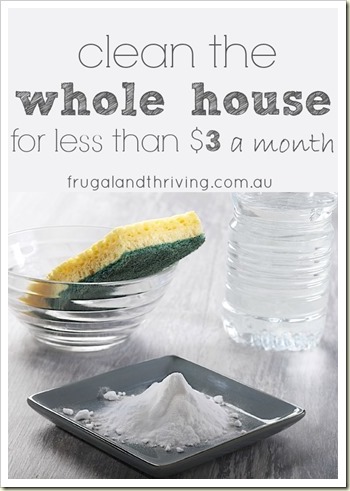
DO YOU MAKE YOUR OWN CLEANERS or use cloths? WHAT IS YOUR CLEANING ROUTINE FOR frugal cleaning?
*This is an affiliate link. I receive a small commission if you decide to make a purchase by clicking on this link at no extra cost to you. This supports this blog.

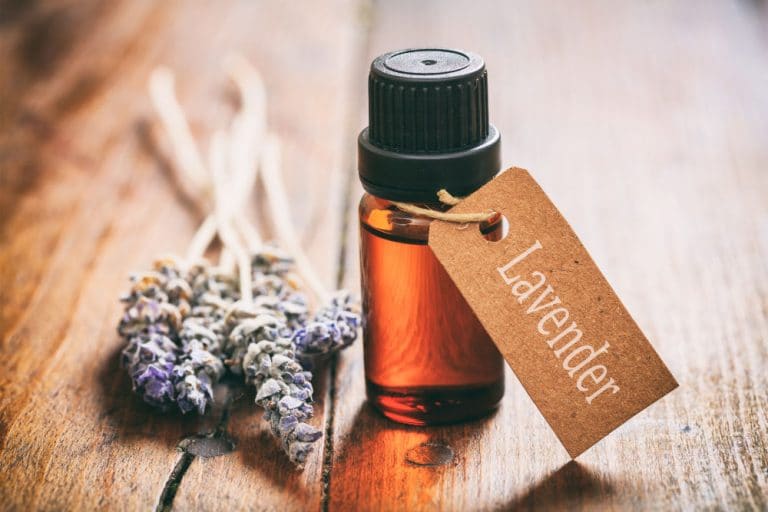
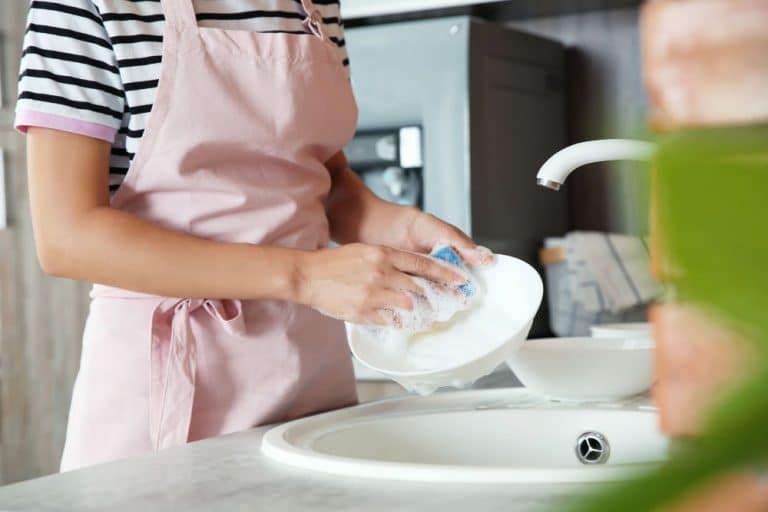
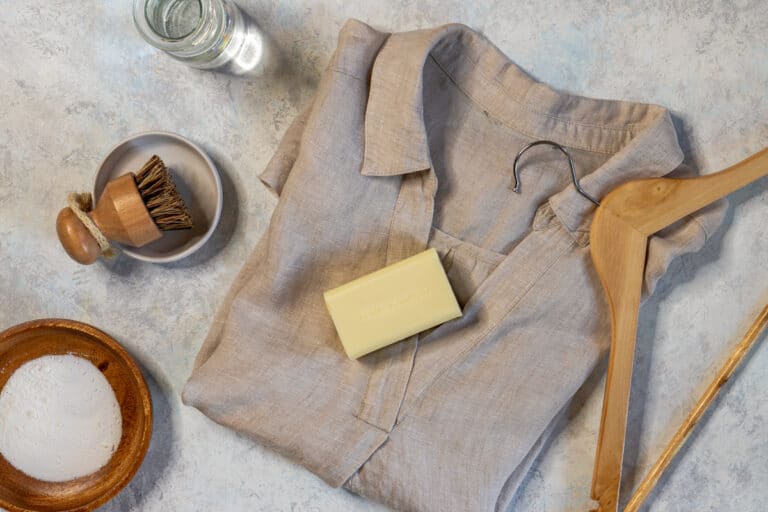
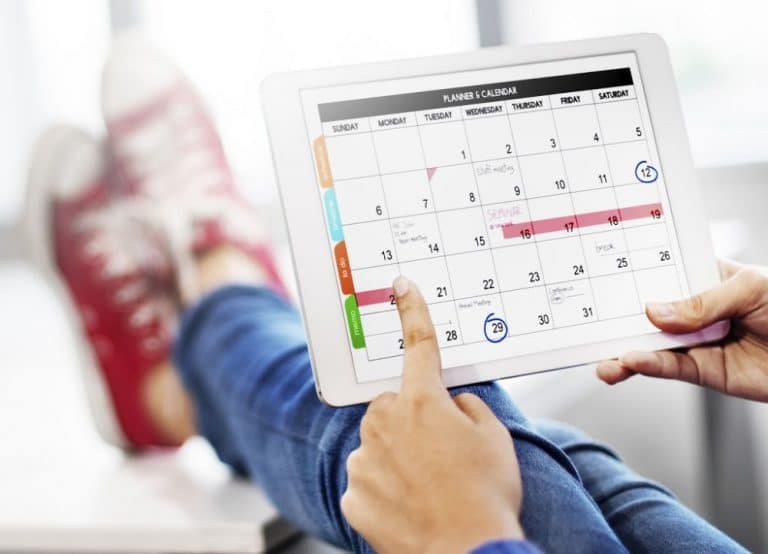
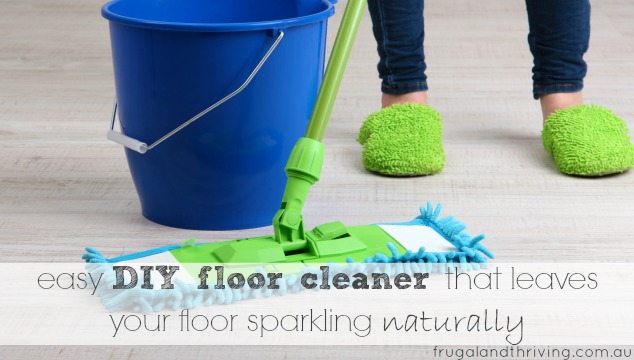
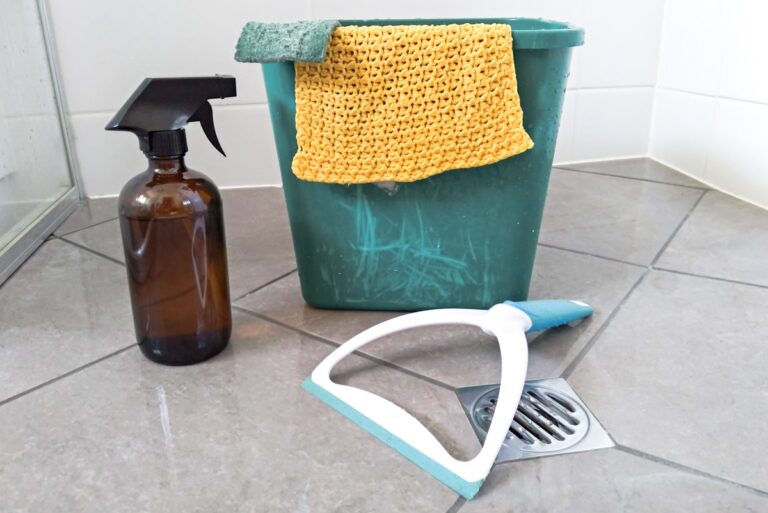
I read your cleaner recipe(gumption type) I was told that the abrasive in “G” was good old fashioned CHALK ! yes the type they wrote on the blackboard with.So if your paste is not abrasive enough try finely grinding some sticks of chalk and adding to the mix.I made solvol type soap by grating and melting a block of sunlight soap adding a little lanolin and some very fine sand then resetting ,but you could leave it as a semi liquid-works a treat on garden and workshop hands.Ground chalk powder is a good abrasive on its own.
I’m going to try that! I’ve got plenty of chalk lying around because of the kids! Thanks Eileen.
Love this site and all the great tips. Thank you